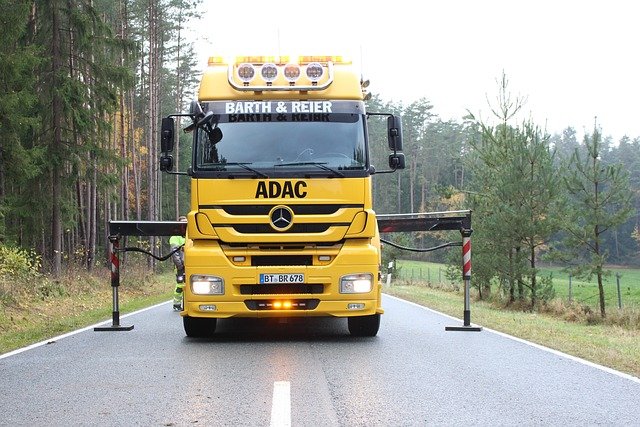Learn How Seized Trucks Operate & What Happens To Them
When law enforcement agencies confiscate vehicles through legal proceedings, seized trucks enter a complex system of custody, evaluation, and eventual disposition. These commercial vehicles, ranging from pickup trucks to heavy-duty freight haulers, follow specific protocols that determine their ultimate fate. Understanding this process helps clarify how seized trucks operate within the legal framework and reveals opportunities for potential buyers seeking commercial vehicles at reduced prices.

How Seized Trucks Operate Within Legal Systems
Seized trucks operate under strict legal oversight once they enter government custody. Law enforcement agencies typically impound these vehicles following arrests related to drug trafficking, tax evasion, illegal transportation activities, or other criminal enterprises. The trucks remain in secure facilities while legal proceedings unfold, with agencies maintaining detailed custody records and preserving evidence when necessary.
During the seizure period, trucks undergo thorough inspections to document their condition, identify any modifications, and ensure they meet safety standards. Government custodians perform basic maintenance to preserve the vehicles’ value, though extensive repairs rarely occur during this phase. The operating status depends entirely on the legal case timeline, which can range from several months to multiple years.
What Happens to Seized Trucks After Legal Resolution
Once legal proceedings conclude, seized trucks follow predetermined disposition pathways. Courts may order vehicles returned to original owners if they successfully challenge the seizure, though this outcome remains relatively uncommon in cases involving criminal activity. More frequently, trucks become government property available for redistribution.
Federal and state agencies often retain seized trucks for their own fleet operations, particularly when vehicles meet specific operational requirements. Police departments, transportation agencies, and other government entities evaluate seized trucks for potential integration into their existing fleets. Trucks deemed unsuitable for government use proceed to public auction systems or authorized disposal programs.
The disposition timeline varies significantly based on case complexity, court schedules, and agency processing capabilities. Some trucks reach auction within six months of seizure, while others remain in government custody for several years pending appeals or related legal matters.
How to Find Seized Trucks Through Official Channels
Government agencies conduct seized truck sales through established auction systems and online platforms. The General Services Administration operates GSA Auctions, where federal seized vehicles regularly appear alongside surplus government equipment. State and local agencies typically partner with commercial auction houses or maintain their own disposal programs.
Prospective buyers can monitor these opportunities by registering with official auction websites, subscribing to agency notifications, and following local law enforcement social media accounts. Many agencies announce upcoming auctions through newspaper publications, government websites, and specialized automotive auction services.
Preview periods allow potential buyers to inspect seized trucks before bidding, though mechanical guarantees rarely accompany these sales. Successful bidders must typically complete purchases within specified timeframes and arrange their own vehicle removal from government facilities.
Seized Truck Price Ranges and Market Considerations
Seized truck prices vary considerably based on vehicle condition, age, model, and auction competition. Light-duty pickup trucks generally sell between $3,000 and $15,000, while commercial delivery trucks typically range from $8,000 to $25,000. Heavy-duty freight trucks and specialized commercial vehicles can command prices from $15,000 to $60,000, depending on their specifications and condition.
| Vehicle Type | Typical Price Range | Common Auction Venues |
|---|---|---|
| Pickup Trucks | $3,000 - $15,000 | GSA Auctions, Local Sheriff Sales |
| Box/Delivery Trucks | $8,000 - $25,000 | Government Fleet Sales, Online Auctions |
| Semi-Tractors | $15,000 - $45,000 | Federal Asset Sales, Specialized Auctions |
| Specialized Commercial | $20,000 - $60,000 | Agency Direct Sales, Contract Auctions |
Prices, rates, or cost estimates mentioned in this article are based on the latest available information but may change over time. Independent research is advised before making financial decisions.
Seized Trucks Tips for Potential Buyers
Successful seized truck purchasing requires careful preparation and realistic expectations. Buyers should establish maximum bid limits before attending auctions, as competitive bidding can quickly escalate prices beyond market value. Professional vehicle inspections, when possible during preview periods, help identify potential mechanical issues or necessary repairs.
Documentation requirements vary by agency, but buyers typically need valid identification, payment methods, and transportation arrangements. Cash or certified funds are usually required, with credit card acceptance varying by auction venue. Title transfers may involve additional processing time and fees beyond the winning bid amount.
Research comparable market prices for similar trucks to establish reasonable bidding ranges. Factor in potential repair costs, registration fees, and transportation expenses when calculating total acquisition costs. Some seized trucks may require commercial driver’s licenses for legal operation, particularly heavy-duty vehicles exceeding weight restrictions.
Understanding the seized truck process reveals both opportunities and challenges for potential buyers. While these vehicles can offer significant savings compared to retail purchases, successful acquisition requires patience, preparation, and realistic expectations about vehicle condition and legal requirements. Government agencies continue refining their disposal processes, making seized truck sales increasingly accessible to qualified buyers seeking commercial vehicles at competitive prices.




